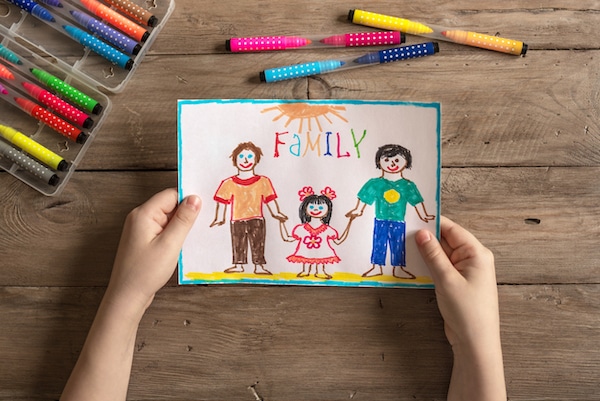Family Connections
Resources you can use to engage families in supporting children’s learning and development

Supporting Every Family
Families come in all shapes and sizes, but they all want children to have the best possible early learning experiences! We help you connect with families by sharing resources that promote interactions of warmth, respect, and sensitivity to each family’s needs, background, and culture.
Engaging Families Early On
Teacher-Child Relationships
Strong relationships with families lead to strong relationships with children. NAEYC shares key practices that engage families in their child’s early learning.
Working with Families to Support Peer Relationships
Peer Relationships
This article from Raising Children Network (Australia) discusses how preschoolers make friends and what educators and families can do to support peer relationships.
Families as a Resource
Problem Solving With Others
In this article from the Center for Responsive Schools, Carol Davis shares how teachers can have conversations with families about problems that occur in the classroom.
Modeling Empathy
Fostering Empathy
Written by Amanda Morin for Understood, this blog is a great introduction for parents on what empathy is, how children learn this important skill, and how parents can model it at home.
Working with Families to Support Children's Self- Confidence
Promoting Self-Confidence
In this article from the Child Mind Institute, Liz Greene shares four ways families can support the development of self-confidence.
Embracing Families
Developing Sense of Self
The National Center on Quality Teaching and Learning (NCQTL) shares tips for educators on building relationships with families of dual language learners.
Labeling Emotions at Home
Recognize and Describe Emotions
This short video (including printables) from Sesame Street models how caregivers can talk with children about their emotions, label children’s emotions, and support their big feelings with strategies that are simple to implement at home.
Tools to Talk About Emotions
Recognize and Describe Emotions
Young children deal with many of the same emotions that adults do. This short article from CSEFEL provides caregivers with simple strategies to help young children understand and express their emotions.
Responding to Strong Emotions
Supporting Children’s Emotions
Tantrums are one way young children express their strong emotions in the classroom and at home. This resource from Zero to Three offers caregivers strategies to prevent tantrums and respond to children’s strong emotions.
Supporting Families in Managing Behaviors
Supporting Children’s Behavior
Dr. Rosemarie Allen from the National Center for Pyramid Model Innovations talks with two mothers about their experiences with school suspension.
Encouraging Physical Activity
Gross Motor Skills
This video from the Center for Early Childhood Education at Eastern Connecticut State University offers several ways to incorporate physical activity into daily preschool and home routines.
Let’s Talk About Movement
Gross Motor Skills
This podcast from the Office of Head Start shares how educators and families can support infants’ and toddlers’ motor development through daily movement and active play.
Partnering With Families
Fine Motor Skills
This U.S. News & World Report article by Risa Kerslake gives practical ways educators and families can collaborate together to support the development of children’s fine motor skills.
Fine Motor Skills at Home
Fine Motor Skills
In this video from EYFS, educators share the benefits of developing fine motor control and give their top tips for developing children’s fine motor skills. These tips can be shared with families to use at home.
Supporting Self-Care at Home
Self-Care
This article from Kid Sense explains the importance of self-care skills, how they develop, and ways to help children strengthen their skills in any setting – at school or at home.
Self-Help Skills at Home
Self-Care
This article from the Extension Alliance for Better Child Care shares ways educators and families can help young children become independent by encouraging various self-help activities.
Healthy Ways to Celebrate
Healthy Habits
From food to activities, this video from Alliance for a Healthier Generation offers tips to celebrate special occasions with children in healthy ways.
Promoting Healthy Habits
Healthy Habits
This article from UCSF Benioff Children’s Hospitals outlines ways to introduce new foods, make mealtimes pleasant, and ensure that toddlers get the nutrients they need.
Connecting Home Experiences with Play
Imitation and Symbolic Representation
This video from the Center for Early Childhood Education (CECE) at Eastern Connecticut State University shares strategies for planning and supporting dramatic play with children’s personal and home experiences in mind.
Exploring Mud Play
Active Exploration
Playing with mud may be messy but so beneficial for young children. This video from Illinois STAR NET offers several ways to encourage children’s active exploration during mud play.
Inquiry Based Learning
Inquiry
This video from Austin Parks and Recreation shares ways educators and families can support children’s inquiry skills.
Supporting Inquiry Through Science
Inquiry
This article from Sesame Workshop shares strategies educators and families can use to facilitate children’s investigation of the natural and physical world.
Facilitating Reasoning Skills
Reasoning
This video from Queensland Curriculum and Assessment Authority shares strategies educators and families can use to facilitate children’s higher order thinking.
Thinking and Play
Reasoning
This article from Raising Children Network (Australia) Limited shares strategies educators and families can use to facilitate children’s reasoning skills through play.
Problem-Solving at Home
Problem-Solving with Tasks
This article by Rasmussen University discusses 9 ways adults can promote children’s problem-solving skills during everyday activities.
Encourage Problem-Solving
Problem-Solving with Tasks
This video from All About Young Children offers effective strategies to facilitate children’s problem-solving skills at home and within the learning environment.
Looking for more resources?
Equity and inclusion are critical to our mission. We invite you to check out resources to help you and your teams consider different ways to support each child’s needs.

